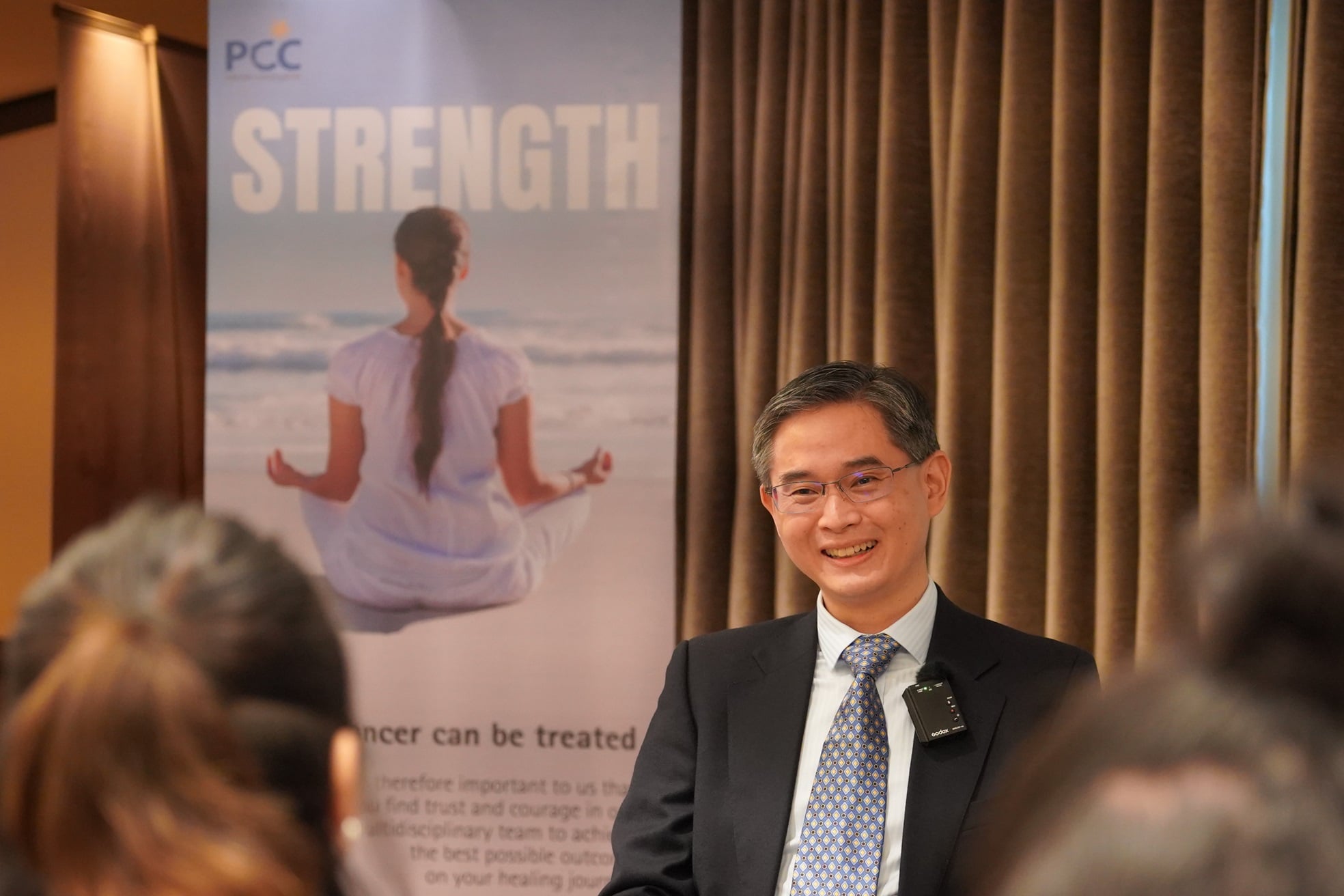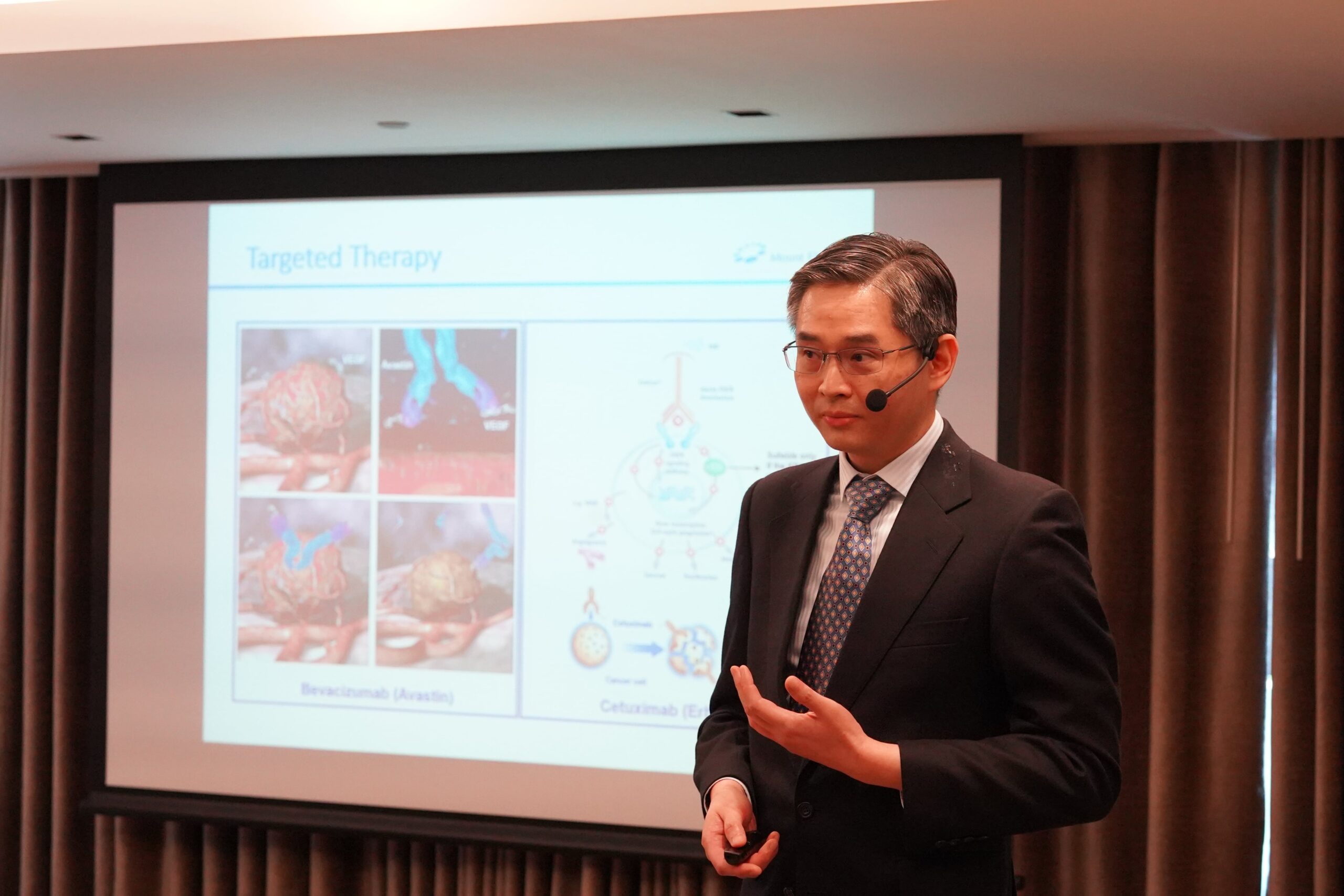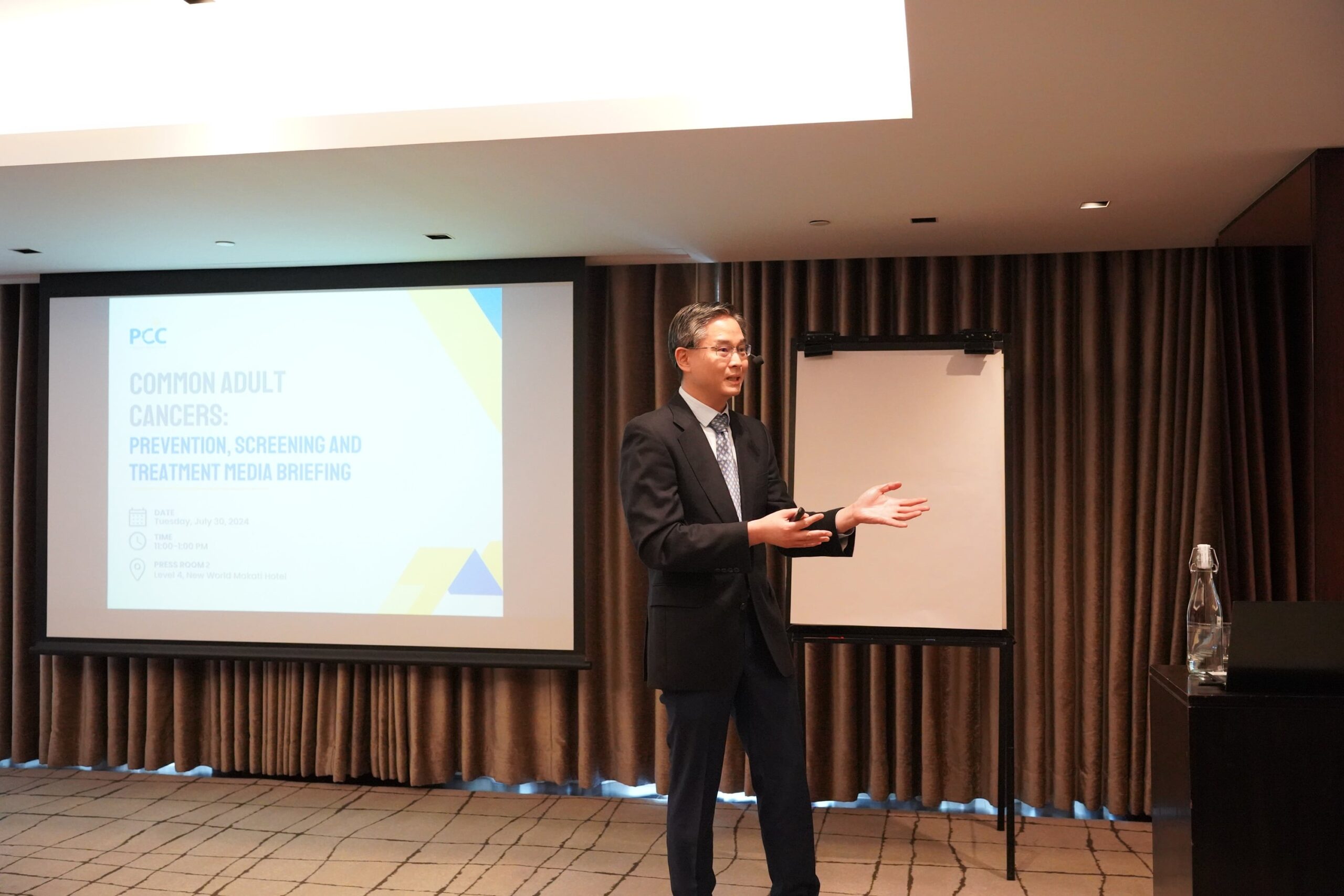Most recent statistics on cancer have shown a significant increase in the rate of cancer globally that makes awareness and early detection urgent today. In the latest report by the International Agency for Research on Cancer (IARC) in 2022, nearly twenty million new cases of cancer were recorded along with 9.7 million deaths. These statistics have become more disturbing since it is estimated that the annual number of new cases will rise to thirty five million by 2050.
In Southeast Asia, new cases increased to 1.1 million and have caused death to seven hundred thousand people in 2022 alone, with breast, lung, and colorectal cancers as three of the leading causes.

Part of addressing this global trend, the World Health Organization (WHO) set goals to reduce the impact of non-communicable diseases (NCD), including cancer, through prevention, early detection, diagnosis, treatment, and palliative care, prioritizing a holistic approach to managing and reducing cancer cases.
Specialized cancer-care institutions in Southeast Asia, such as Parkway Cancer Center, have been taking action to boost these efforts by providing modern facilities, advanced treatment options, and comprehensive support services for patients.
On July 30, 2024, Parkway Cancer Center hosted a media roundtable titled “Common Adult Cancers: Prevention, Screening, and Treatment” at the New World Hotel to raise further awareness and educate the public on cancer prevention and treatment.

Dr. Zee Ying Kiat, Senior Consultant of Medical Oncology at Parkway Cancer Center, led the discussion on the advancements in treatment and essential facts about different types of cancer, drawing from his extensive research and clinical experience.
Cancer causes and prevention today
According to the classifications by IARC, cancer develops when normal cells turn into tumor cells through several stages. As per Dr. Zee, tumor cells can become more abnormal and aggressive, giving them the ability to affect nearby tissues and spread to other parts of the body.
Changes happen due to the interaction between a person’s genetic factors and three types of external agents: physical carcinogens like ultraviolet (UV) radiation from the sun and ionizing radiation, chemical carcinogens such as components of tobacco smoke, alcohol, and food contaminant aflatoxin, and biological carcinogens like infections from viruses, bacteria, or parasites.

Dr. Zee also stated that hereditary cancers rarely occur, and that most cancers only arise as a result of lifestyle changes. He said that about one in five people develop cancer, and one in 10 people with cancer dies before they turn 75.
Understanding cancer risk factors can help individuals and public health organizations take steps to prevent these risks. Studies show that 30-50% of cancers are preventable by developing healthy lifestyle choices, avoiding risk factors, and enforcing evidence-based prevention strategies.
Importance of early detection
Early detection through screening can significantly improve treatment outcomes and increase chances of survival, and better, can help one check for cancer for those who do not display symptoms yet.
“Cancer, if undiagnosed or untreated, has the potential to grow and spread to distant organs. This, in turn, can result in symptoms and failure of the affected organ or organs,” said Dr. Zee.
Types of screening tests include physical examinations and history, laboratory tests like blood tests, and imaging procedures. However, there are only cancers where screening can be possible and recommended like breast, cervical, colorectal, and prostate cancers. Dr. Zee emphasized that not all can have effective screening tests.
In addition, screening can also help detect and remove abnormalities that can cause cancer if left untreated. For instance, if during colonoscopy screening for colorectal cancer, polyps were detected, it can be removed immediately to prevent them from becoming cancerous.

Dr. Zee, an expert in general medical oncology and has a special interest in colorectal cancer, also emphasized that in East and Southeast Asian countries, researchers have observed a significant rise in colorectal cancer rates. Early detection, timely diagnosis, appropriate treatment, and regular follow-up care are essential for improving survival rates and quality of life.
“Early diagnosis, even before the onset of symptoms, is crucial in allowing doctors to deliver more effective treatment with potentially higher rates of cure. This underlines the importance of screening for colorectal cancer.” he remarked.
Advancements in Treatment
Parkway Cancer Center has made significant strides in developing precise treatment procedures and personalized treatment plans, contributing to increased survival rates for colorectal cancer patients. The type of treatment recommended depends on several factors, including the stage of cancer and the patient’s overall health.
“Optimal outcomes can only be achieved if patients receive multidisciplinary institutional care from medical specialists like the medical oncologist, radiation oncologist, surgical oncologist, radiologist and pathologist, integrated with input from allied health professionals like oncology-trained nurses, dieticians, physiotherapists and counselors.” He pointed out.
Surgery remains the primary treatment, evolving from open surgery to minimally invasive techniques like laparoscopic surgery, which reduce recovery time and pain.
Chemotherapy, radiation therapy, immunotherapy, and targeted therapy complement surgical interventions, offering tailored approaches to destroy cancer cells and manage the disease.
Targeted therapies, in particular, show promise in extending the lives of patients by focusing on specific genetic mutations. This therapy approach demonstrated efficacy in numerous adult cancers, including colorectal, lung, breast, stomach, and liver cancers.
The fight against cancer relies on a multifaceted approach that includes prevention, early detection, and advanced treatment strategies. Parkway Cancer Center remains at the forefront of this battle, offering personalized treatments that have significantly improved patient outcomes.
With ongoing research and innovation, the hope is to continue enhancing the quality of life for those affected by this disease. As highlighted during the recent media roundtable event, awareness and education are paramount in empowering individuals to take proactive steps in their health journey.
About Parkway Cancer Center
Parkway Cancer Center is dedicated to providing comprehensive cancer care through advanced medical technology, personalized treatment plans, and compassionate support for patients and their families. Our team of experienced oncologists and healthcare professionals is committed to improving outcomes and enhancing the quality of life for those affected by cancer.
For more information, please log on to https://www.parkwaycancercentre.com/



